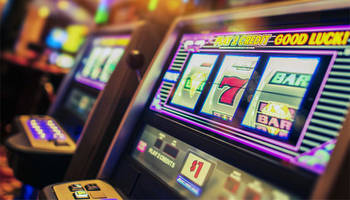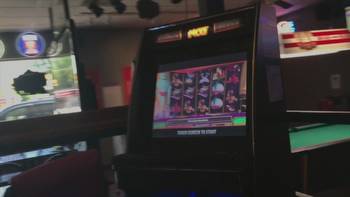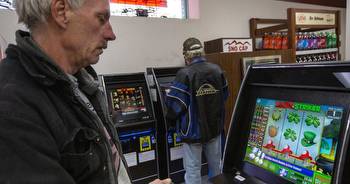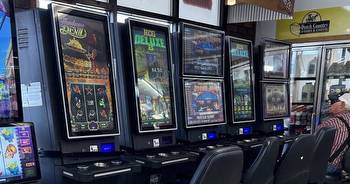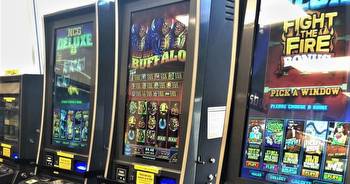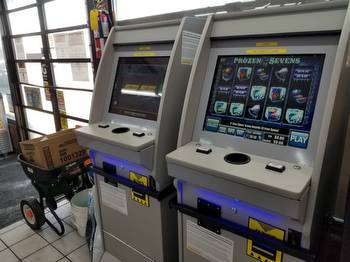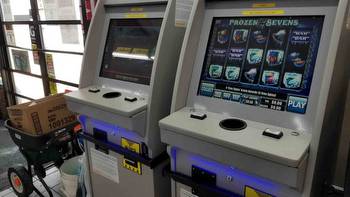Legislative gridlock on gambling puts ‘gray-market’ machines before Missouri courts
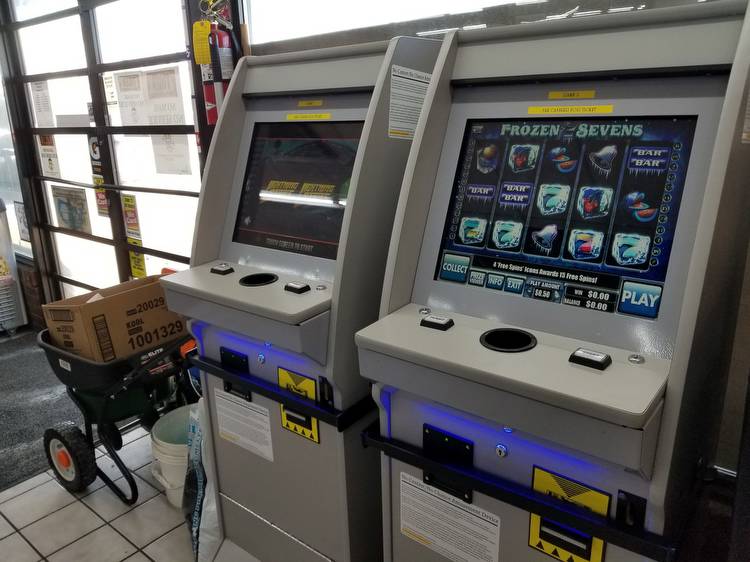
Despite a felony guilty verdict, a misdemeanor guilty plea and ongoing criminal cases in several counties, another year of legislative inaction means unregulated devices that offer cash prizes to players will continue to proliferate in Missouri.
Whether that inaction will also become an issue in the courts — where, in addition to about a dozen criminal cases, civil cases are pending to block prosecution of machine owners and retailers that host them — is uncertain.
Missouri has legal, regulated gambling in the form of a state lottery, 13 casinos, charity bingo and raffles. The unregulated, or “gray market” machines, claiming to be legal because they reveal the outcome of the next wager on request or mimic a raffle, have proliferated since 2019 in convenience stores, other retailers and at lodges operated by fraternal and veterans organizations.
Attorney David Steelman of Rolla, who is representing a company being charged in a felony case in Linn County, said it is an open question whether the legislature’s failure to act will have an impact in either civil or criminal cases.
His firm is researching it, he said.
“I think so but no definitive answer yet,” Steelman said.
Linn County Prosecuting Attorney Shiante McMahon, who is being sued in civil court by the same company Steelman is defending in the criminal case, said she hadn’t paid enough attention to know the legislative outcome.
“The law stands as the law stands,” she said, “and it has got to find its way through the courts at this point.”
Steelman represents Tritium International Consulting, a Florida-based company that says its machines are legal electronic raffle devices, not illegal slot machines. The company offers the machines to not-for-profit fraternal and veterans organizations, which are allowed to operate raffles under the state constitution.
Tritium is charged with felony promotion of gambling. On Thursday, Circuit Judge Russell Steele ruled against Steelman’s motion to dismiss the criminal case.
No date has been set for the criminal trial. The civil case, seeking to block prosecution through a court order, is set for trial in September.
McMahon declined to comment specifically on the case.
The other significant civil case is pending in Cole County. Torch Electronics, which owns numerous machines in retail locations, and Warrenton Oil Company, which hosts the devices in its FastLane convenience stores, sued the state for an order blocking enforcement in any county.
Torch is also charged in a felony case pending in Linn County.
Untaxed ‘gray machines’
Casinos pay a 21 percent tax on the net losses by patrons and approximately 25 percent of the proceeds from lottery tickets goes into the state treasury. Both funding streams are spent exclusively on education programs.
State Sen. Denny Hoskins, R-Warrensburg, sponsored a bill that would have legalized sports wagering at casinos, allowed video lottery terminals subject to a 21 percent tax and clarified that most of the machines currently in place are illegal.
“My biggest fear is we have a lot of unregulated and untaxed gray machines,” Hoskins said, adding that the estimates he believes put the number at 15,000 to 20,000.
Legislation is needed, he said, so players know the machines are honest and the education programs that benefit from gambling are supported.
“I would put everybody on the same playing field,” Hoskins said.
Hoskins gave up on the bill this year after Sen. Mike Moon, R-Ash Grove, added a provision sending it to a statewide vote. All previous expansions of state-sanctioned gambling, from bingo and raffles, to the lottery and casinos, have gone before voters.
The difficulty in doing that with his bill, Hoskins said, is the consequence of defeat at the polls. It would have been a single vote on three questions — legalizing sports wagering and state-approved video lottery games and making illegal any machine that has not been authorized by state regulators.
A vote against the bill, he said, could be viewed in court as a signal that the public doesn’t consider gray-market machines to be illegal.
Without regulation, he said, there is no protection for players that they have a reasonable chance of breaking even or winning money.
“If it says you win 1 out of 100 times, no one is checking that you are wrinning that often,” he said.
In contrast, players are guaranteed that slot machines and the lottery will return set amounts. For gambling machines in casinos – slot machines and those that mimic table games like video poker – the minimum return is 80 percent. According to Missouri Gaming Commission data, in March the 13 casinos paid out an average of 90 percent of the money deposited in the machines.
A minimum 45 percent of lottery revenue is dedicated to prizes.
In both the Linn County criminal and civil cases, Tritium International is trying to prove that its games are legal raffles, authorized by the constitution. Hoskins said he thinks the company may prove its case because current law doesn’t define the elements of a raffle.
The machines work by determining how many chances in a game and which ones are winners when the game begins. As the player makes each wager, a chance is drawn randomly and compared against those selected as winners.
“E-raffle is just a modernization of technology,” Hoskins said. “In my opinion, e-raffles are legal at religious and charitable organizations.”
The Cole County case is designed to do what legislators have been unable to do — provide a definitive answer to whether the gray-market machines are legal.
Whether the legislature’s inaction will mean anything to the courts is uncertain, attorney Chuck Hatfield, who represents Torch and the other plaintiffs, said in a recent interview.
“I have been thinking about that,” he said. “I think it may be important that the legislature did not clarify the law.”










